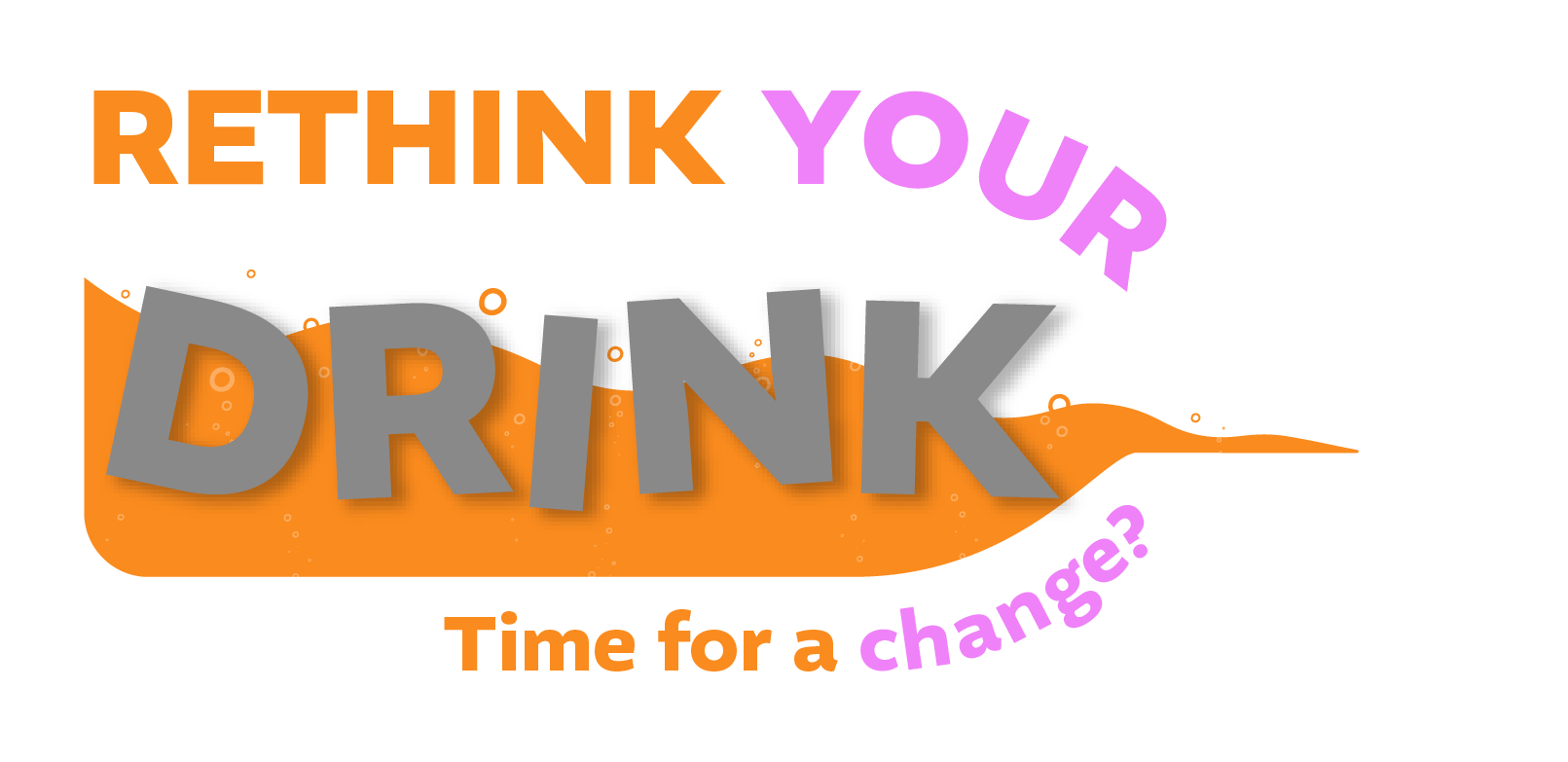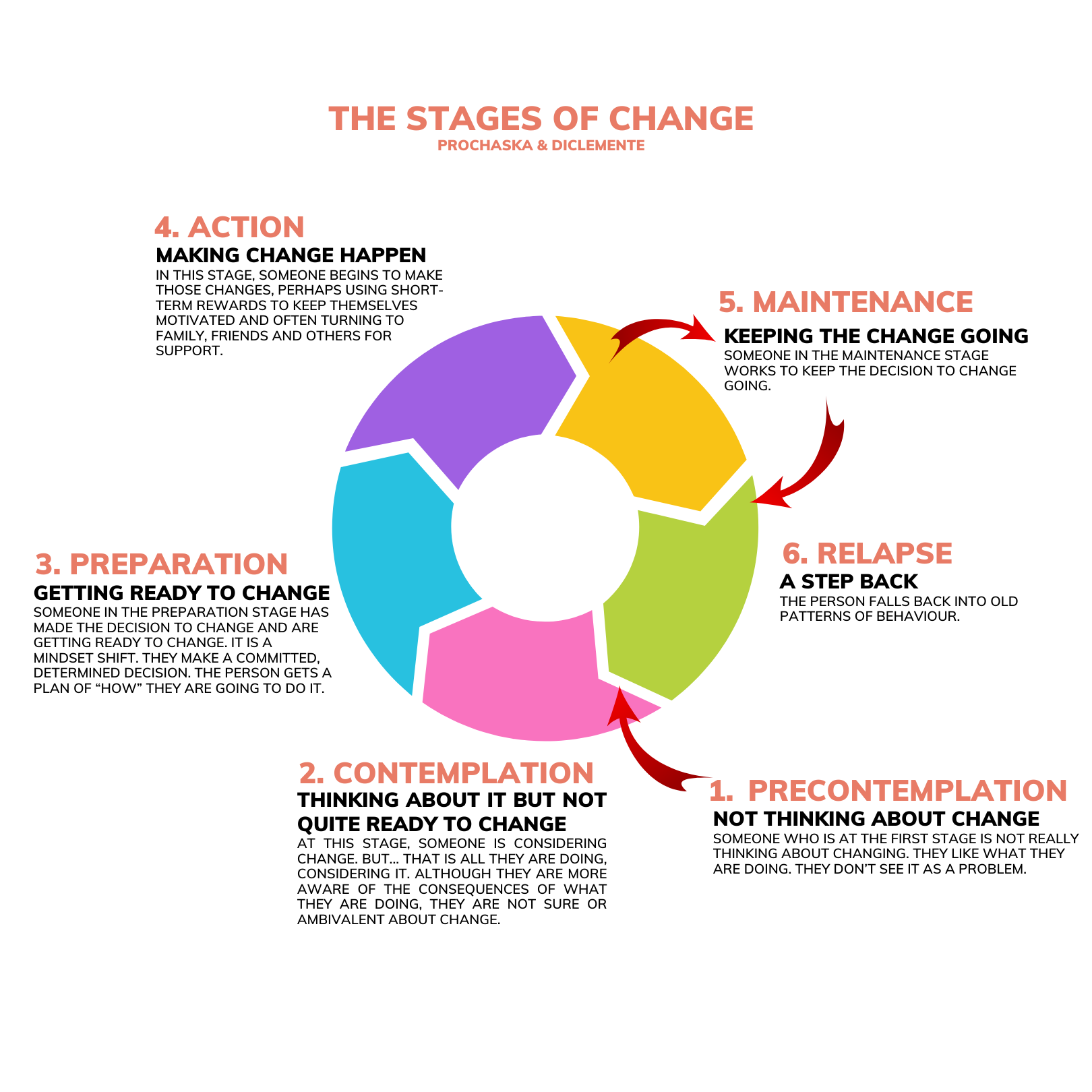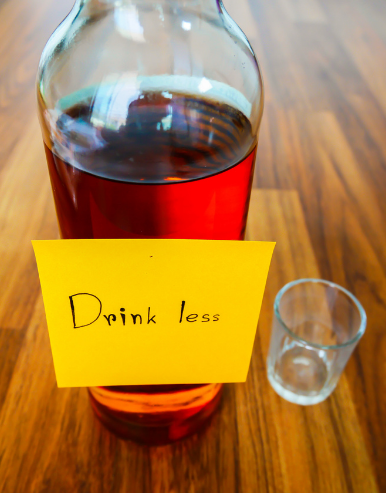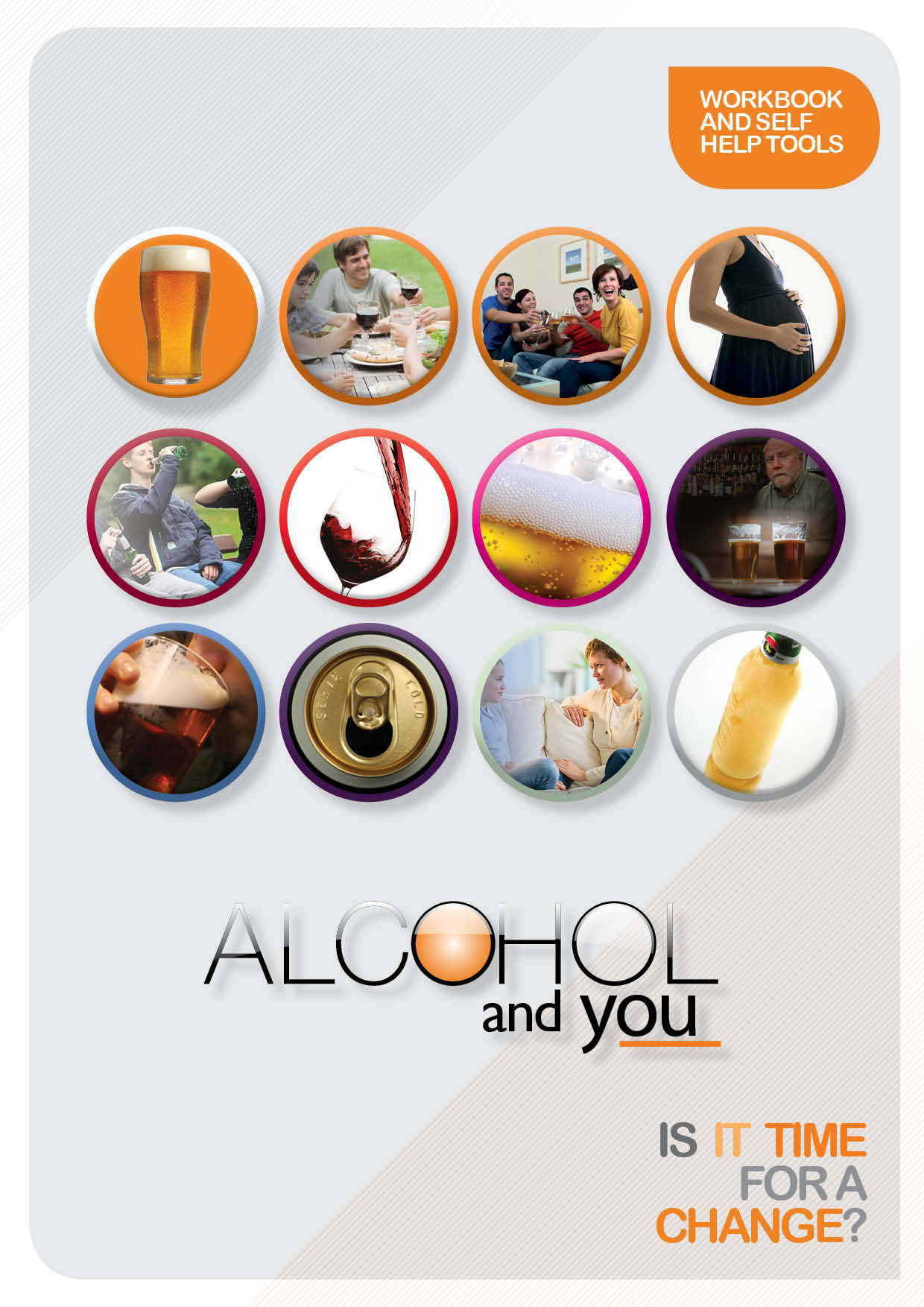
Is it time for a change?

Where do I start?
The thought of change can be daunting. You may not be sure that you want to do it, or what is the best approach to take. You may have tried before and not been able to stick to. These concerns are normal, what is important is that you make choices that are going to be right for you.
Think through your decision to change:
• Weigh up the cost and benefits
• Set a goal
• Set achievable targets
• Reward yourself for success
• Ask for help if you need it
Things will work significantly better if:
• You have good reasons to want to change your drinking habits.
• You make changing your drinking a priority for yourself.
• You feel confident to give the task of changing your drinking an honest attempt.

Benefits of drinking less
When you drink alcohol excessively, there are risks to all areas of your life. These risks can be avoided or minimised by not drinking at all or drinking at a level that would be considered within the responsible drinking guidelines. Whatever you decide to do is entirely up to you. It is important you think through carefully and make decisions that are best for you.
In order to think through your reasons for cutting down, ask yourself, in the last three months, how many of the questions below you can answer yes to.
A positive response may point towards some of the benefits you will experience if you drink less.
- Have you woken up unable to remember some of the events of the day/night before?
- Do you argue more with family or friends under the influence of alcohol?
- Do you feel rotten the day after drinking?
- Does your drinking affect your finances?
- Have you given up hobbies, sports, interests and spend more time drinking?
- Do you tend to depend on alcohol in certain situations? Which ones?
- Have you concealed the amount you are drinking in any way from those you care about?
- Have you behaved in any way that you regret when drinking?
- Does alcohol seem to change your personality?
- Have your work relationships been affected through your drinking?

Tips on staying within your limits
There are many ways to help yourself stay within your limits. Here are some suggestions.
- Keep to your personal drinking rules; when, where and how to drink.
- Pace yourself.
- Take smaller sips.
- Put your glass down between sips.
- Change your drink.
- Drink for the taste.
- If you drink spirits, dilute them and have a soft drink between alcoholic drinks.
- Learn to refuse drinks.Avoid rounds. If you are in company, buy the first round and your own after that.
- Reward yourself for success.
Have a cut off point that is realistic, yet represents a meaningful reduction in your drinking.
- Avoid rounds. If you are in company, buy the first round and your own after that.
- Reward yourself for success.
- Have a cut off point that is realistic, yet represents a meaningful reduction in your drinking.
- Have days of rest from alcohol. It helps to remember that alcohol is a sedative drug that will impair judgement. Three to five units for most people over two hours will be enough to lose self-control. For women it’s less. Keeping to limits can take more than willpower. Determination, a plan and support are as important.
It helps to remember that alcohol is a sedative drug that will impair judgement. Three to five units for most people over two hours will be enough to lose self-control. For women it’s less. Keeping to limits can take more than willpower. Determination, a plan and support are as important.
What happens if I slip? Sometimes you may go over your personal limit. It helps not to view this as failure, but an opportunity to learn what puts you at risk. If you keep finding yourself drinking more than you intended to and it is causing you difficulties, you may need to rethink your goal. Talk this over with your GP or support worker.
Staying within your goal To help you reach your goal, keep a ‘diary’ of your drinking. Write down every time you drink, how much, where and with whom. This will give you a view on how well you are progressing with your goal.
Dealing with pressure to drink
Some people find they get stuck thinking about drinking or get pressure from friends.
These are a few tips if you feel under pressure. Which of these would work for you?
- Think about the good things about sticking to your goal. Look back over the things you have identified in this questionnaire. It helps to pay attention to these positive things rather than focusing on what you seem to be giving up. Add more items of your own to the list of benefits.
- Think about the bad side of excessive drinking Make a list of unpleasant experiences associated with getting drunk. Try to think of an image of a specific thing that tells you, “I just don’t want that”
- Distractions Doing something you enjoy or you want to get done will get your mind off drinking.
- Self-reinforcement Remind yourself of your success so far. Do you want to give that up?
- Leave or change the situation If it is putting you under too much pressure get up and leave.
- Call someone who in the past has been helpful? Keep in mind that it is ok to ask for help. To reach any goal, it is important to ask for help if you need it.
There are a number of myths, which have developed over the years and in most cases are far from the truth.

Myth Alcohol is a stimulant. It lifts you when you are depressed.
Fact Alcohol is a depressant. It removes inhibitions giving the impression it is a stimulant. It is a depressant drug that taken in large amounts “puts the brain to sleep”.
Myth Alcohol warms you up. It can be good for a cold.
Fact Alcohol cures nothing. The calories released by the burning of alcohol seem to make you feel warmer, but the body actually loses heat. Drinking excessively leaves the body open to more infection.
Myth Drinking black coffee will help sober you up.
Fact Nothing speeds the liver up in dealing with alcohol. Remember: one unit per hour. Coffee is a stimulant, which may make you feel more alert. Instead of being sleepy and drunk, you may just be alert and drunk.
Myth If a person sticks to beer, they will never become dependent.
Fact Alcohol, no matter what package it comes in, is an addictive drug. You can become dependent through drinking any type of alcohol or mixture of alcoholic drinks excessively.
The Alcohol and You Workbook
This workbook is a helpful tool to help you look at your drinking and provides useful information and advice on how you can make changes. For many people, cutting down on their drinking would be a practical step forward. It could avoid a lot of problems in the future. This workbook is not a replacement for professional help if you need it.

What can you do to support change?
This way of looking at change does not say change is easy. What else is going on in your life? The influence of friends or how much support you have will have an impact. It means you will have different needs depending on what stage you think you are at.
Stage of Change
Precontemplation
Does not see a problem. I am ok with what I am doing
What can you do to move forward?
• Increase your awareness of the harm alcohol can cause.
• Challenge positive attitudes toward drinking
• Get other interests
Stage of Change
Contemplation
Thinking about it. Has thought about change but that is all. Unsure about change.
What can you do to move forward?
- Identify reasons to change
- Discuss fears or concerns of not changing
- Build your belief that you can change if you want to
- Consider what is important to you
Stage of Change
Preparation
Getting ready. Gets committed to change, makes a plan.
What can you do to move forward?
- Determine how best to make the changes you need
- Make a plan
- Get support
Stage of Change
Action
keeping the decision going
What can you do to move forward?
- Take steps towards changing
- Work on preventing relapse
- Build other interests, hobbies
- Find other ways to relax, socialise
- Build your skills of coping, decision making
- Make changes in your lifestyle and friends
Stage of Change
Relapse
Taking a step back
What can you do to move forward?
• Get back on track
• Learn from what happened
• Build your confidence so you can try to change again
• Talk to people who have successfully changed
• Get support

